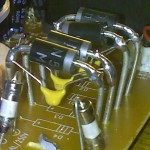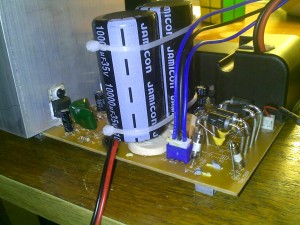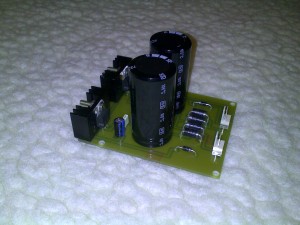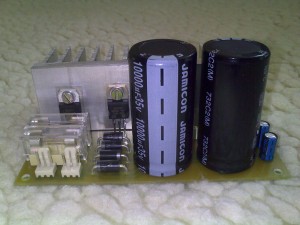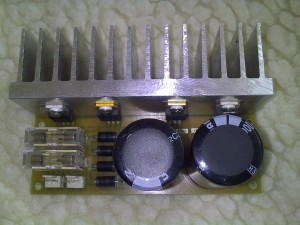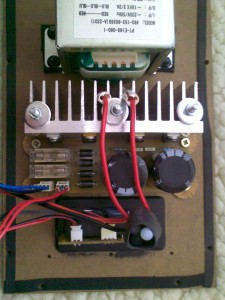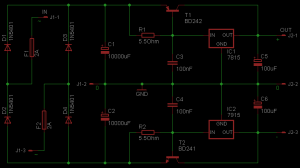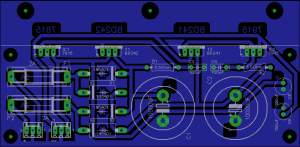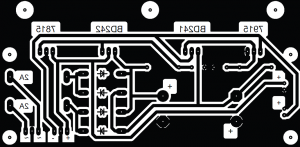Let me tell you a story about my Genius 2000X Speakers.
I am very satisfied with the tone of these speakers. Only one thing which disturbing is a soft hum. I use it with a laptop and when I go to bed the computer is delayed to shutdown but the speakers are on all night. If the shutdown is earlier as I would fall asleep then I hear the hum from the speakers. So I decided to eliminate somehow. I had some failed try but finally succeeded.
My first try was to apply 100nF bypass capacitors on the four rectifier diodes. Unfortunately the hum level is unchanged. :(

The second try was to change the two 3300uF buffer capacitors to 10000uF. Unfortunately the hum level is still the same. So I put back the two 3300uF :( :(
- I took a look on the amplifier circuit and red on the TDA2050 data sheet that is strongly power supply hum sensitive. So I decided to build a new stabilized power supply on a separated board. The original supply voltage is +-20.4V in idle by my measurements. Than got back to the data sheet of TDA2050 and I realized that +-15V can be sufficient. I tried to use 7815 and 7915 voltage regulators to build a stabilized power supply. My first fault was to not think with the maximum supply current of 7815 and 7915. These are 1A in optimal use. But 2 x 2A is needed for the maximum output power on the amplifier. The sinks were overheated on new board although the amplifier was idle. :( :( :(
- I decided to plan a stronger power supply. I kept 7815 and 7915 but extended with BD241 and BD242 transistors. I used a more effective sink on the new board. The new board gets supply from the transformer directly. The stabilized +-15V is wired to the 3300uF capacitors on the amplifier board. The result is heaven. Speakers in idle are finally as silent as outer space. There is no discoverable distortion or power fall neither higher volume levels :)
